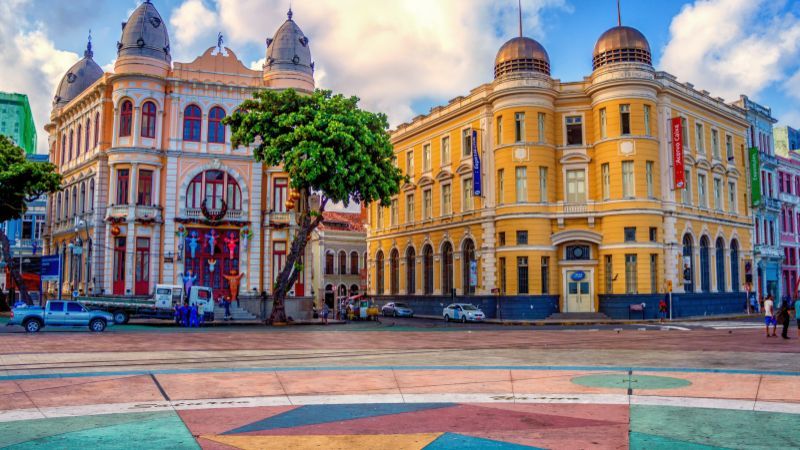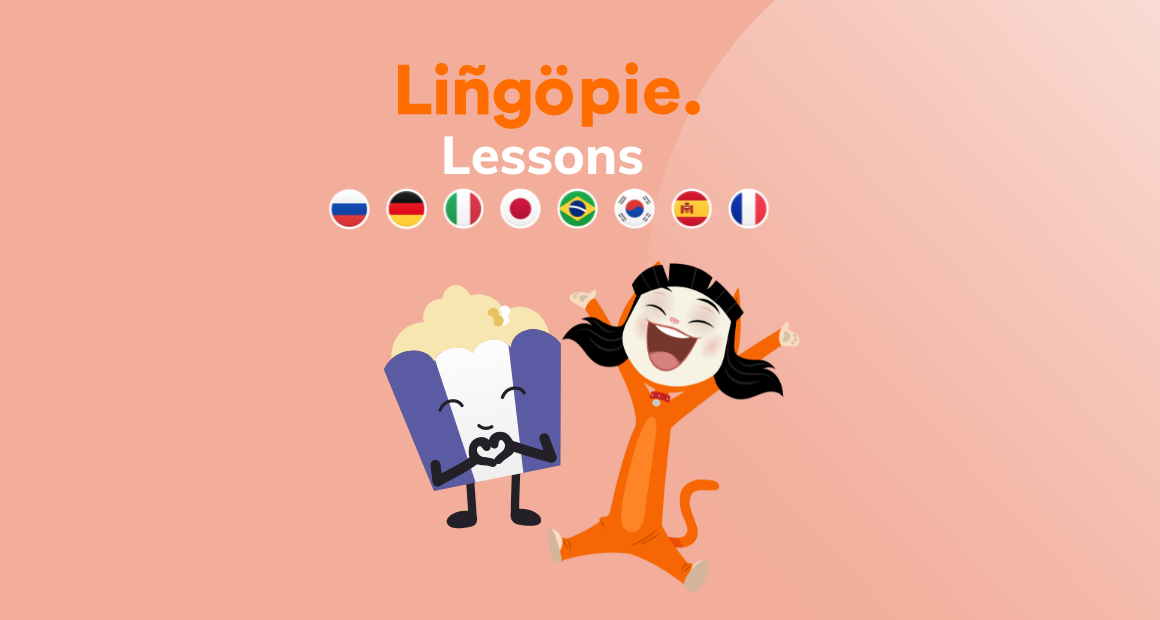Ever wondered what makes the language of Brazil's Northeast so captivating? Dive into these 50 colorful expressions and discover how they bring the region’s vibrant culture to life.
The Northeast region of Brazil is a lively and culturally rich area, known for its blend of Indigenous, African, and Portuguese influences. This unique heritage is reflected in the region's vibrant traditions, music, and especially its language. Thus, the Portuguese language spoken here is filled with distinctive expressions and slang that capture the essence of everyday life.
Whether you're planning a visit to Northeast Brazil or just learning the language, these Portuguese expressions from the northeast of Brazil will give you a unique glimpse into the culture of Brazil.

What Are Some Words or Expressions in Brazilian Portuguese That Don't Exist in Other Portuguese Dialects?
Brazilian Portuguese has many unique expressions that don't exist in other Portuguese dialects, reflecting the country's diverse culture and regional influences. Here are some of them with example sentences:
1. Saudade - A deep emotional state of nostalgic longing for something or someone.
- "Tenho saudade da minha infância." (I miss my childhood.)
2. Malandro - A street-smart person who lives by their wits.
- "Ele é um malandro, sempre sabe como se virar." (He is street-smart, and always knows how to get by.)
3. Jeitinho - The Brazilian way of finding a solution, often by bending the rules.
- "Com um jeitinho, conseguimos resolver o problema." (With a little creativity, we managed to solve the problem.)
4. Xodó - An affectionate term for someone or something cherished.
- "Esse carro é meu xodó." (This car is my darling.)
5. Cafuné - The act of running fingers through someone's hair.
- "Ela adora receber cafuné." (She loves getting her hair stroked.)
1. Common Portuguese Expressions

The Northeast of Brazil is known for its rich and colorful culture, and its language is also filled with expressions that are both unique and widely used in everyday conversations. Here, we'll explore 15 common expressions, their English meanings, explanations, and example sentences to help you understand and appreciate the linguistic charm of this vibrant region.
Abestado - Silly or foolish.
- Explanation: Refers to someone who acts in a naive or goofy way.
- Example: "Ele é um abestado, sempre faz coisas sem pensar." (He is silly, always doing things without thinking.)
Arretado - Great or angry.
- Explanation: Depending on the context, it can mean something fantastic or describe someone who is very angry.
- Example: "Esse filme é arretado, você precisa assistir!" (This movie is great, you have to watch it!)
Avexado - In a hurry or impatient.
- Explanation: Describes someone who is always rushing or can't wait.
- Example: "Ele está avexado para chegar em casa." (He is in a hurry to get home.)
Cabra da peste - Tough guy.
- Explanation: Used to describe someone who is brave or resilient.
- Example: "João é um cabra da peste, enfrentou todos os desafios." (João is a tough guy, he faced all the challenges.)
Danado - Naughty or very good.
- Explanation: Can describe someone mischievous or something impressive.
- Example: "Esse menino é danado, sempre aprontando." (This boy is naughty, always causing trouble.)
Eita - Wow or Oh my.
- Explanation: An expression of surprise or amazement.
- Example: "Eita, que notícia boa!" (Wow, what good news!)
Oxe - What or Why.
- Explanation: Used to express surprise or disbelief.
- Example: "Oxe, você aqui?" (What, you here?)
Peste - Darn or Pest.
- Explanation: Can be used to express annoyance or refer to a bothersome person.
- Example: "Esse mosquito é uma peste!" (This mosquito is a pest!)
Ruma - A lot or a bunch.
- Explanation: Refers to a large quantity of something.
- Example: "Tem uma ruma de gente na festa." (There are a lot of people at the party.)
Mainha - Mom.
- Explanation: A term of endearment for mother.
- Example: "Mainha, onde você está?" (Mom, where are you?)
Painho - Dad.
- Explanation: A term of endearment for father.
- Example: "Painho, me ajuda aqui." (Dad, help me here.)
Forró - A traditional dance or party.
- Explanation: Refers to a popular genre of music and dance in the Northeast.
- Example: "Vamos ao forró hoje à noite?" (Shall we go to the forró tonight?)
Fulô - Flower.
- Explanation: A regional variation of the word "flor."
- Example: "Ela me deu uma fulô." (She gave me a flower.)
Moído - Tired or exhausted.
- Explanation: Describes someone who is very tired.
- Example: "Estou moído depois do trabalho." (I am exhausted after work.)
Xamego - Affection or cuddling.
- Explanation: Refers to showing love and affection.
- Example: "Ela gosta de um xamego." (She loves a bit of affection.)
Read Also:


2. Portuguese Expressions Related to Emotions and Reactions

Expressions in the Northeast of Brazil are deeply tied to the emotions and reactions of its people. These phrases capture the intensity and warmth of their feelings, making conversations lively and expressive. Here are 10 expressions related to emotions and reactions, along with their English meanings, explanations, and example sentences.
Arretado - Great or angry.
- Explanation: Can describe something fantastic or a person who is very angry.
- Example: "Esse filme é arretado, você precisa assistir!" (This movie is great, you have to watch it!)
Chateado - Upset or annoyed.
- Explanation: Describes someone who is feeling sad or irritated.
- Example: "Ele ficou chateado com a notícia." (He was upset by the news.)
Encabulado - Embarrassed or shy.
- Explanation: Refers to someone who feels shy or embarrassed in a situation.
- Example: "Ela ficou encabulada quando recebeu o elogio." (She was embarrassed when she received the compliment.)
Invocado - Angry or intrigued.
- Explanation: Can mean someone is angry or curious about something.
- Example: "Ele está invocado com essa história." (He is intrigued by this story.)
Magoado - Hurt or sorrowful.
- Explanation: Describes someone who feels deeply hurt or sorrowful.
- Example: "Ela está magoada com o que aconteceu." (She is hurt by what happened.)
Morgado - Bored or uninterested.
- Explanation: Describes someone who feels bored or lacking interest.
- Example: "Estou morgado, não há nada para fazer." (I am bored, there is nothing to do.)
Abismado - Astonished or amazed.
- Explanation: Refers to someone who is extremely surprised or impressed.
- Example: "Fiquei abismado com a beleza do lugar." (I was astonished by the beauty of the place.)
Embriagado - Drunk or intoxicated.
- Explanation: Describes someone who is under the influence of alcohol.
- Example: "Ele estava embriagado depois da festa." (He was drunk after the party.)
Encantado - Delighted or enchanted.
- Explanation: Refers to someone who is charmed or delighted by something.
- Example: "Fiquei encantado com a apresentação." (I was delighted by the performance.)
Desconfiado - Suspicious or wary.
- Explanation: Describes someone who is feeling distrustful or wary of something or someone.
- Example: "Ele ficou desconfiado das intenções dela." (He became suspicious of her intentions.)
3. Everyday Portuguese Slang

Everyday Portuguese slang in the Northeast of Brazil adds a unique flavor to daily conversations, reflecting the region's informal and friendly communication style. Here, we present 10 everyday slang terms, their English meanings, explanations, and example sentences to help you blend in with the locals.
Mangar - To mock or tease.
- Explanation: Refers to making fun of someone in a playful or mocking way.
- Example: "Eles gostam de mangar do jeito que eu falo." (They like to tease the way I speak.)
Bestar - To mess around or act silly.
- Explanation: Describes someone engaging in playful or silly behavior.
- Example: "Para de bestar e vem ajudar!" (Stop messing around and come help!)
Lapada - A hit or a drink.
- Explanation: Can mean a physical hit or taking a strong drink.
- Example: "Ele tomou uma lapada de cachaça." (He took a shot of cachaça.)
Matutar - To think deeply or ponder.
- Explanation: Refers to someone who is lost in thought.
- Example: "Ela passou a noite matutando sobre o problema." (She spent the night pondering the problem.)
Vixe - Wow or Oh my.
- Explanation: An exclamation expressing surprise or astonishment.
- Example: "Vixe, que calor!" (Wow, it's so hot!)
Leso - Dumb or slow-witted.
- Explanation: Describes someone who is perceived as slow or not very bright.
- Example: "Ele é meio leso, não entende rápido." (He is a bit slow, doesn't understand quickly.)
Bulir - To mess with or bother.
- Explanation: Refers to bothering or messing with someone or something.
- Example: "Não bulir com isso, pode quebrar." (Don't mess with that, it might break.)
Cangote - Neck or nape.
- Explanation: Refers to the back of the neck.
- Example: "Ela beijou o cangote dele." (She kissed the back of his neck.)
Cabra - Guy or man.
- Explanation: Informal term for a man or guy.
- Example: "Esse cabra é muito trabalhador." (This guy is very hardworking.)
Galego - Light-skinned person.
- Explanation: Refers to someone with light skin, often with blonde hair.
- Example: "O galego ali é meu amigo." (The light-skinned guy over there is my friend.)
Read Also:


4. Regional Portuguese Idioms and Sayings

The Northeast of Brazil is rich with idioms and sayings that reflect the wisdom and humor of its people. These phrases offer insights into the culture and everyday life of the region. Here are 10 unique Portuguese idioms and sayings from the Northeast, along with their English meanings, explanations, and example sentences.
Chorar o leite derramado - To cry over spilled milk.
- Explanation: Complaining about something that cannot be changed.
- Example: "Não adianta chorar o leite derramado, o jeito é seguir em frente." (It's no use crying over spilled milk; you have to move on.)
Mais feliz que pinto no lixo - Happier than a pig in mud.
- Explanation: Extremely happy or content.
- Example: "Ele estava mais feliz que pinto no lixo com o novo emprego." (He was happier than a pig in mud with his new job.)
Pisar na bola - To mess up or make a mistake.
- Explanation: Refers to making a significant error.
- Example: "Ele pisou na bola e perdeu o prazo." (He messed up and missed the deadline.)
Dar com os burros n'água - To fail or come to nothing.
- Explanation: When plans or efforts result in failure.
- Example: "O projeto deu com os burros n'água." (The project came to nothing.)
Puxar o saco - To suck up or brown-nose.
- Explanation: Flattering someone excessively for personal gain.
- Example: "Ele está sempre puxando o saco do chefe." (He's always sucking up to the boss.)
Estar com a macaca - To be in a bad mood.
- Explanation: Describes someone who is irritable or angry.
- Example: "Ela está com a macaca hoje, melhor deixar ela em paz." (She's in a bad mood today, better leave her alone.)
Encher linguiça - To fill time or space with unnecessary content.
- Explanation: Adding irrelevant information just to fill space.
- Example: "O aluno ficou enchendo linguiça na redação para atingir o número de palavras." (The student was filling his essay with unnecessary content to meet the word count.)
Ficar de molho - To stay in bed or take it easy.
- Explanation: Resting or recovering, often due to illness.
- Example: "Ele está de molho por causa da gripe." (He is staying in bed because of the flu.)
Bater as botas - To kick the bucket.
- Explanation: A colloquial way to say someone has died.
- Example: "O velho senhor finalmente bateu as botas." (The old man finally kicked the bucket.)
Deixar de pantim - To stop whining or complaining.
- Explanation: Telling someone to stop making a fuss.
- Example: "Deixa de pantim e vá fazer seu trabalho." (Stop whining and go do your work.)
5. Food and Drink-Related Portuguese Expressions
Food and drink are central to the culture of the Northeast of Brazil, and many expressions reflect this culinary significance. Here are five Portuguese expressions related to food and drink, their English meanings, explanations, and examples to give you a taste of the region's linguistic flavor.
Buchada - A traditional dish made from a goat's stomach.
- Explanation: A hearty dish often enjoyed during festive occasions.
- Example: "Vamos comer buchada no almoço de domingo." (Let's eat buchada for Sunday lunch.)
Macaxeira - Cassava or manioc.
- Explanation: A staple root vegetable, commonly boiled or fried.
- Example: "Vou preparar macaxeira frita para o jantar." (I'll make fried cassava for dinner.)
Cuscuz - A type of cornmeal dish.
- Explanation: A popular breakfast dish made from steamed cornmeal.
- Example: "Adoro cuscuz com leite de coco." (I love cuscuz with coconut milk.)
Rapadura - Unrefined cane sugar.
- Explanation: A sweet treat made from sugarcane juice.
- Example: "Rapadura é doce, mas não é mole não." (Rapadura is sweet, but it's not soft.)
Tapioca - A type of flatbread made from cassava starch.
- Explanation: Commonly filled with various sweet or savory ingredients.
- Example: "Vou fazer tapioca com queijo e presunto." (I'll make tapioca with cheese and ham.)
Frequently Asked Questions
1. What language do they speak in northeast Brazil?
They speak Brazilian Portuguese in Northeast Brazil, just like the rest of the country. This region has its own distinct accent and a rich collection of regional expressions and slang.
2. What is a famous Portuguese saying?
"Quem tem boca vai a Roma." is a famous Portuguese saying, "He who has a mouth goes to Rome." This saying emphasizes the importance of speaking up and asking for directions or help to achieve your goals.
3. What is the most beautiful Portuguese word?
One of the most beautiful Portuguese words is "Saudade." It describes a deep emotional state of nostalgic longing for something or someone that one loves but is absent.
Final Words
The unique expressions from the Northeast of Brazil showcase the region's lively culture and rich history. They provide a glimpse into the everyday life and emotions of its people. Learning and using these phrases can deepen your connection to the local community and enhance your Portuguese. We encourage you to explore more regional slang and embrace the culture.
Learn Portuguese through TV Shows with Lingopie!
Lingopie stands out for its unique approach to learning Portuguese through authentic TV shows and movies with subtitles. This platform offers an immersive experience that helps improve listening comprehension and vocabulary in context. Its engaging and entertaining content makes language learning fun.
Lingopie is best suited for learners who enjoy learning from authentic media and want to enhance their listening skills in a relaxed environment. If you're looking to immerse yourself in Brazilian culture while improving your language skills, Lingopie is a great choice.
Download Lingopie from the App Store or Play Store now and get a FREE 7-day trial!






